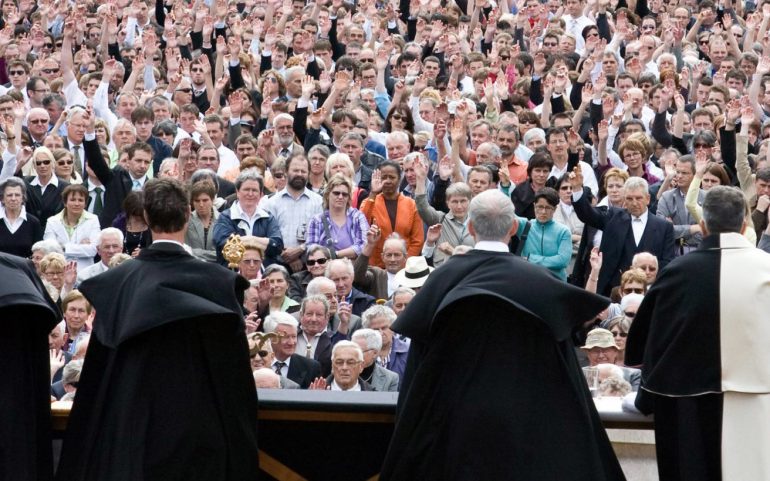It may be known for its snow-capped peaks, chocolates, knives and financial system, but Switzerland remains a landmark for its particular democracy.
An advanced form of direct democracy, "semi-direct" or rather, as defined by its Constitution, a legislative grid that allows every adult citizen to decide how the country will be governed.
The measure of referendums and of popular initiatives has even devoted many world leaders. One of the first things he said that French President Emanuel Macron would like for his country immediately after his election was these assemblies and the direct democratic processes of the Swiss.
However, the fact that the people decide on everything has its obstacles, such as the veto imposed by the citizens on the construction of minarets in the cantons or the other, the "crazy" proposal to ban cars from traffic on Sundays!
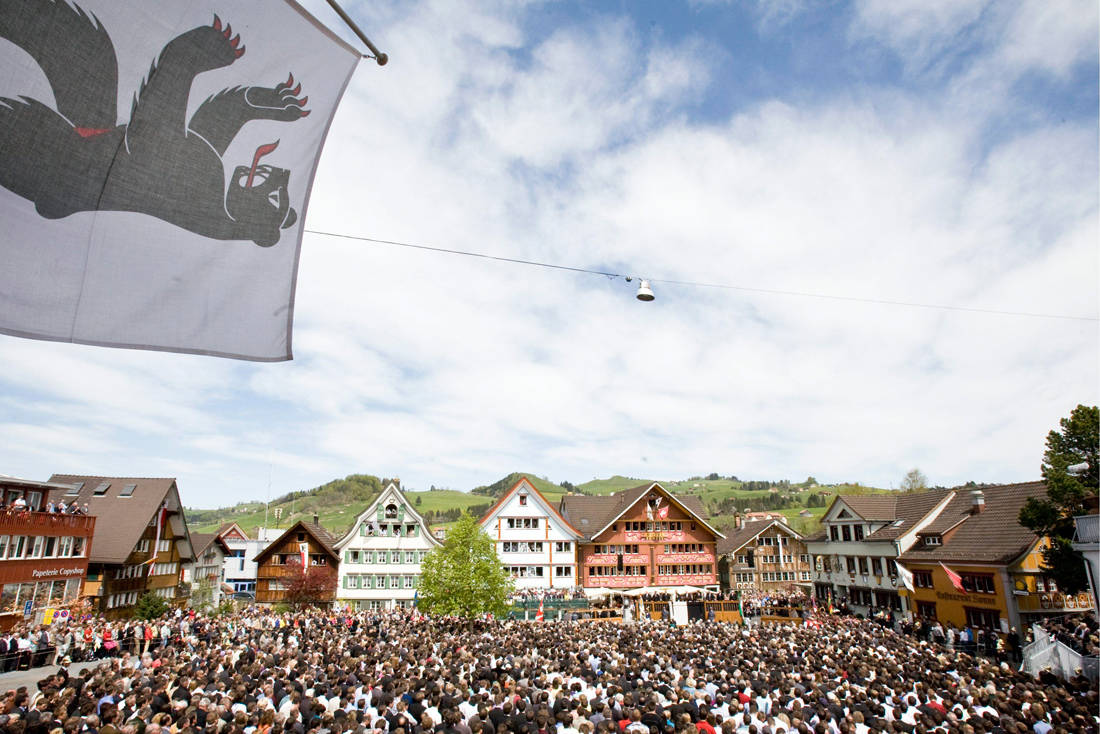
However, when we talk about political self-determination and real popular power, the temperamental democratic formation of Switzerland is second to none. More than a third of the referendums ever held in the democratic world have taken place in Switzerland.
Direct democracy may have been born in Athens, Greece, but the country that practices it and in fact since the Middle Ages is Switzerland. Direct democratic processes are the main point of the Swiss republic, although representation is not lacking. It is indeed the strangest state of the modern age, a hybrid of parliamentarism and direct democracy that has much to teach the world.
As David Altman, a political analyst and expert on direct democratic processes, puts it: "The processes and decisions of direct democracy inevitably result in an additional and better distribution of power. "Those who have the most power in a political system are those who usually oppose the adoption of direct democratic processes, such as referendums."
The "golden milestone of direct democracy" is what the eminent scientist calls Switzerland, an example to be imitated when the people are to decide for their lives directly, unadulterated and non-negotiable.
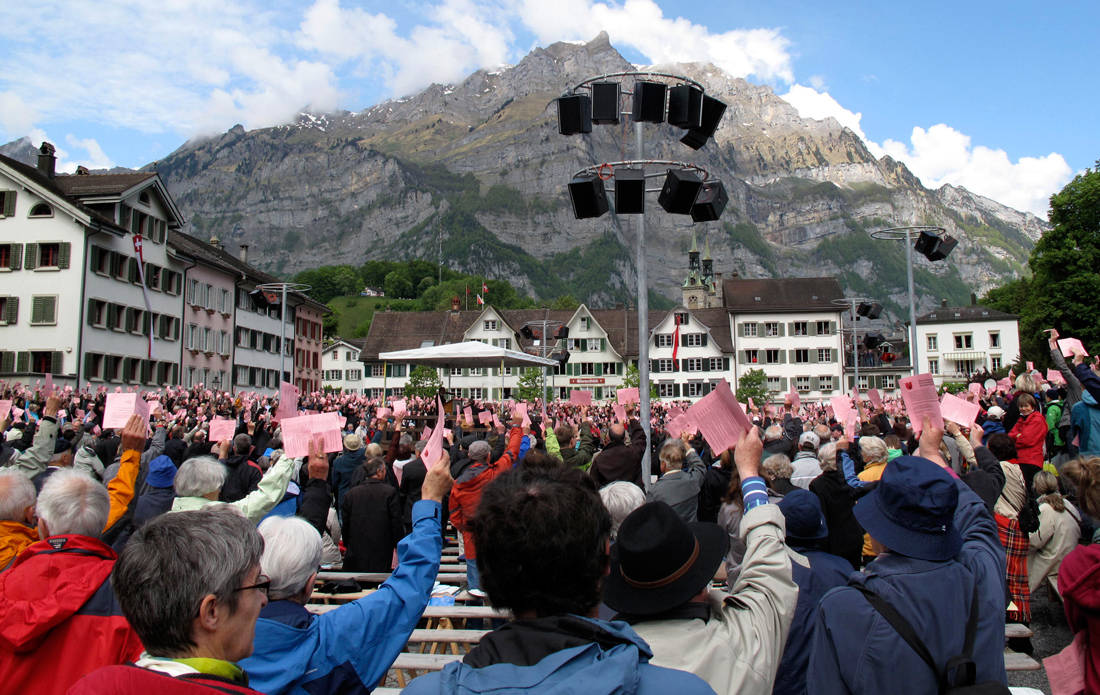
We call semi-direct that democratic formation in which the representatives of the nation exercise executive power, but the real legislative power is left to the citizens. That is, a representative government, but with a direct democratic sign.
The primacy of the citizen over the elected government passed into the Swiss Constitution as early as the 1830s, while in force as early as the 13th century. The institutionalization had to thank him in many ways Ioannis Kapodistrias, who was the mastermind behind the first and highly promoted democratic concessions a few years earlier (1813-1814), when the federal state was still in its infancy and certainly not the Switzerland of 1830 and 1848. Kapodistrias was still behind and from the famous regime of neutrality granted to Switzerland in 1815 at the Paris Conference.
Most of the cantons that made up the Swiss Federation had adopted more or less direct democratic procedures. When in 1848 the so-called "Sworn Alliance" evolved into a constitutional federal state and the cantons ceded some of their responsibilities to the central state, this was the decisive moment for the people to demand the establishment of the right of even greater political participation.
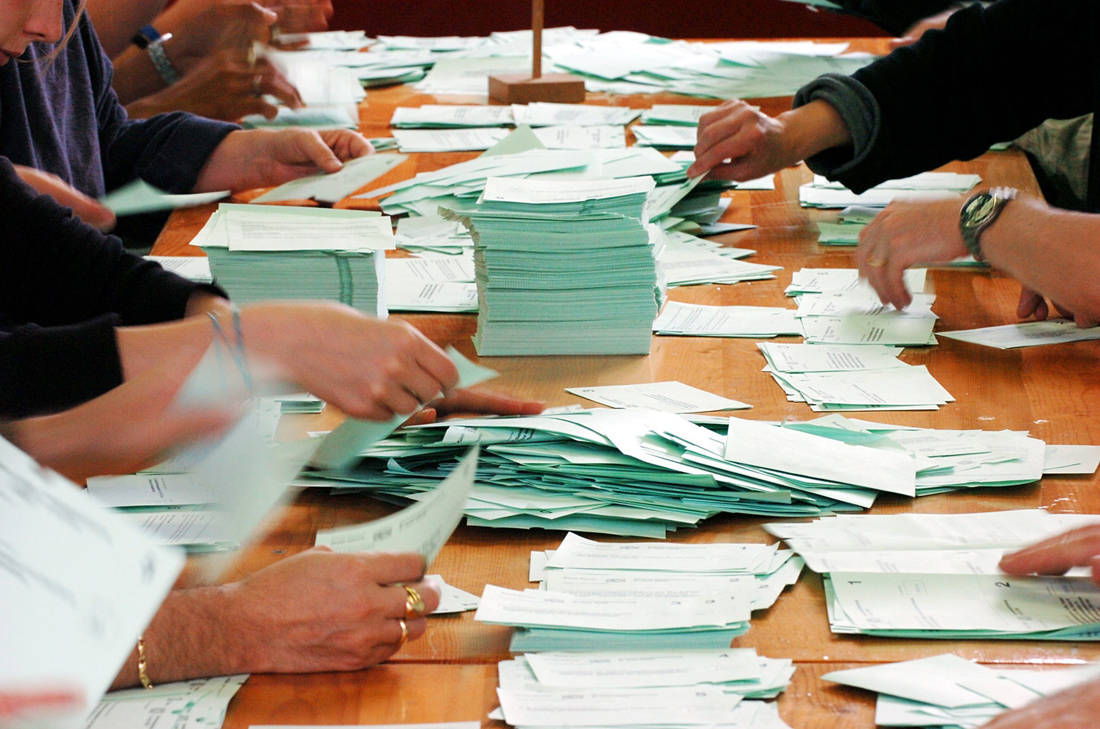
This is because the people, especially the workers and farmers, realized that simply having the right to veto government decisions was not enough. And so a few years later, in 1874, both the referendum and the assemblies were constitutionally established.
In 1891 it was time for another cornerstone of popular power, the institutionalization of the so-called "popular initiative" and the "initiative to revise the Constitution". Whatever the government proposes in legislative terms now goes through the world.
In the last 120 years, more than 240 proposals, bills and amendments have been put to popular consultation. And as the Swiss popol has always been conservative, only 10% of these measures have been passed.
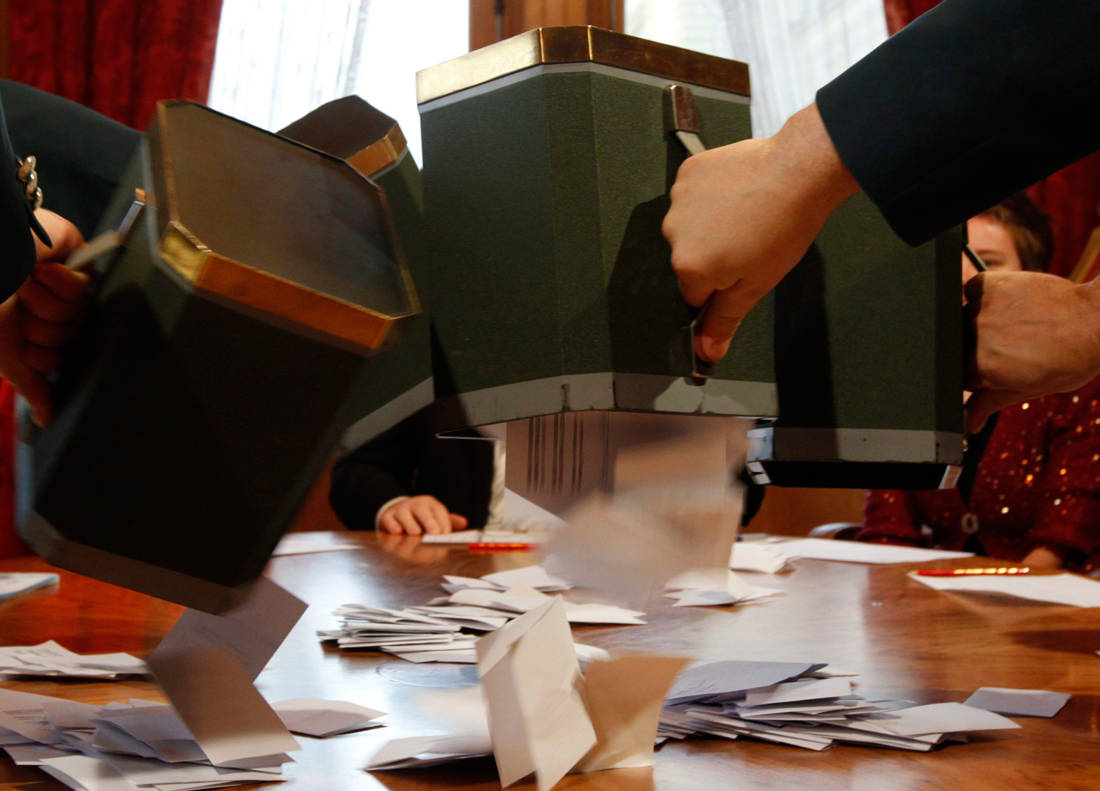
The Swiss Confederation currently consists of 26 cantons, 2.715 administrative communities and a population of 8,5 million. Despite participatory processes at all levels of government, Switzerland remains a parliamentary country, with representation at the federal level.
However, what distinguishes it from other democratic countries is the power of the people to put to popular consultation any law proposed or passed by the government! For this to happen, 50.000 signatures must be collected (approximately 1% of the electorate) within 100 days of the vote or proposal of the legislation in question.
And if in 96 of the 100 laws passed by the government no referendums are held, this has to do with the high levels of acceptance enjoyed by the central governments, which are also elected by the system of simple analog.
The participation of the system also allows the people to propose even constitutional revisions (with 100.000 signatures in 18 months), as long as they do not violate fundamental human rights or democratic provisions. The direct democratic formation is completed with the popular power to control and revise any law, local or federal. Even international conventions signed by Switzerland can be put to the verdict!
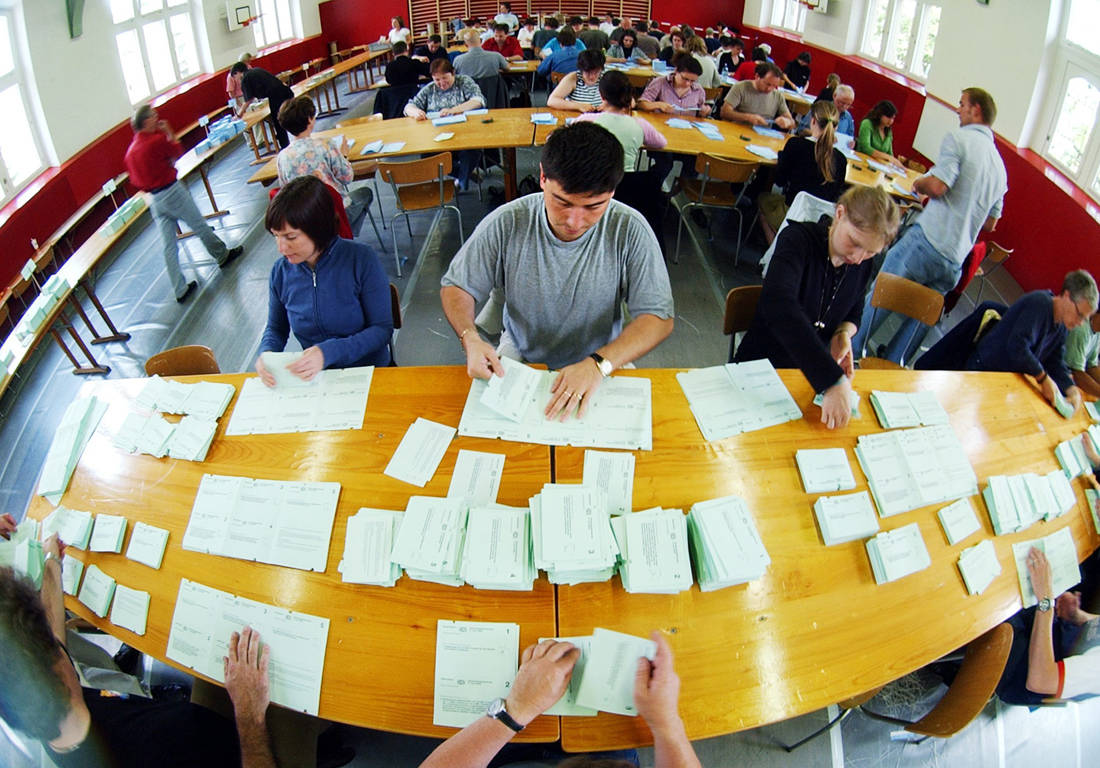
What does this mean in practice? That the government can not pass anything if the people do not agree. Everything that is considered anti-popular is rejected in practice by the popular will itself. The people are not represented here, they have their own voice.
At the same time, however, the omnipotence of direct democracy of the Swiss model does not weaken parliamentary processes or representation. People's legislator and executive government go hand in hand. And how else could it be otherwise when the citizen has the last word?
Governments are thinking two or three times about voting for measures, as they know the base will turn them back. The decisions of the people have binding force and are not a joke. The ups and downs do not come here. Elected rulers are forced to legislate even against their will if the people say so. And he will say it where needed.
This right of the people to challenge Parliament's subsequent decisions is the cornerstone of direct democratic participation. What is commonly called the ability of the citizen to control and repeal federal laws, parliamentary amendments and state agreements through referendums? "Brake in the hands of the people"!
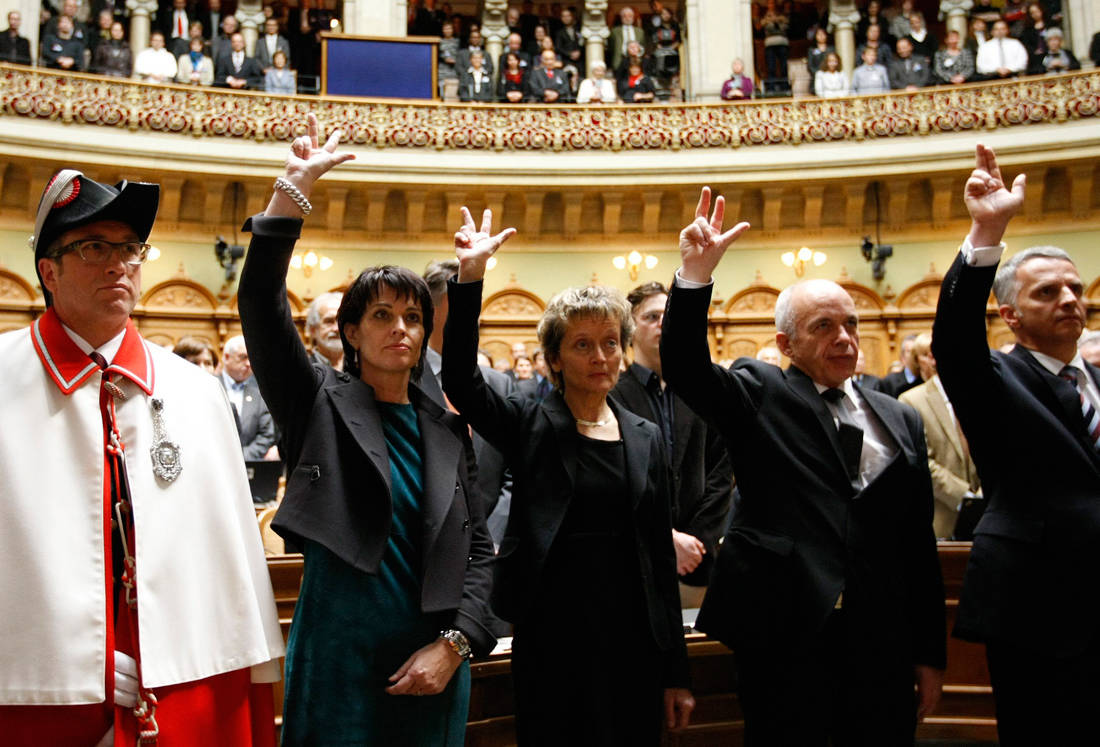
So the Swiss government is not legislating for the world, it is legislating with the world. There are natural differences in the system, as each canton reserves the right to modify its system, making it more or less participatory. The country does not have a single direct democratic system, but the spirit of the model remains common in its most essential provisions.
Speaking of the idiosyncratic oddities of the Swiss model, of course, one can not help but acknowledge its complete lack ladies man in direct or indirect democratic processes. When did women first vote in the cradle of modern direct democracy? In 1971! And in the case of a canton, only in 1991.
At the same time, there are two cantons (Appenzell Inerhoden and Glarus) where the popular assembly (Landsgemeinde) continues to elect its representatives by show of hands! Several thousand citizens flock to decide on their present and future even without the secrecy of the screen. This old system of direct democratic voting has its pros and cons, but as long as the people want it, it does not fall into any reason. If he stops wanting it, he will change it. With the same raising of the hand…
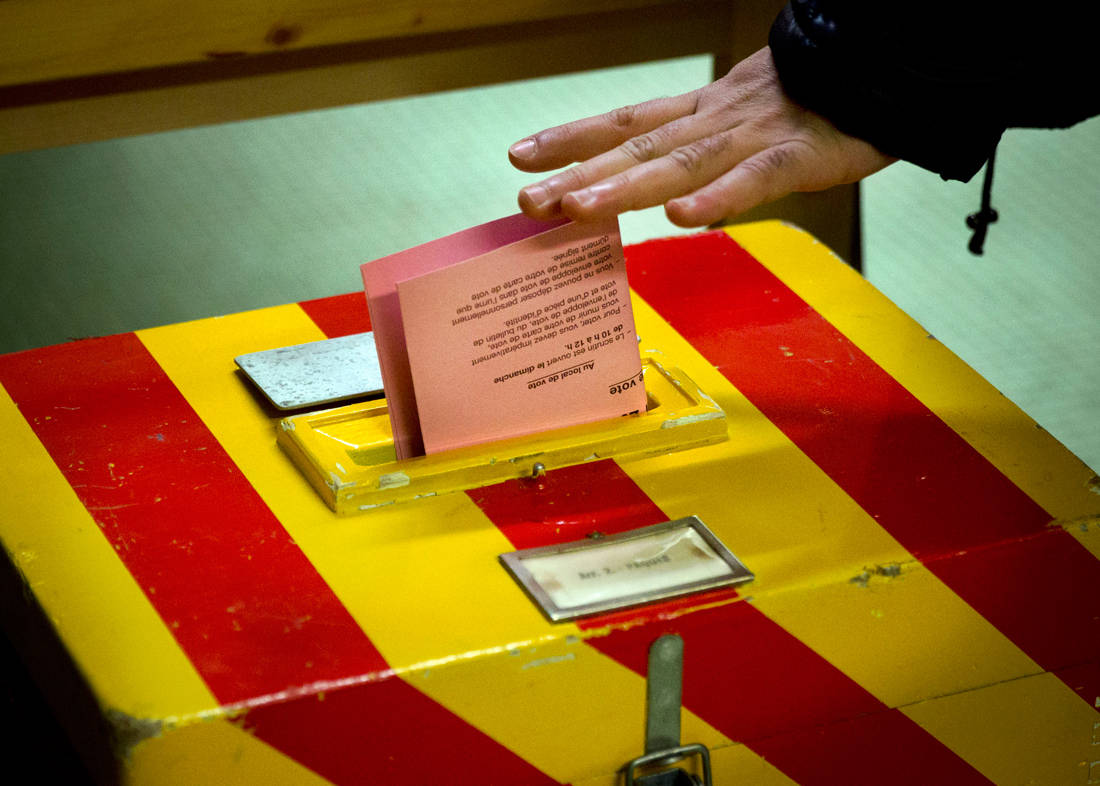
The redistribution of power between parliamentarism and direct democracy is constantly changing in Switzerland. After all, it is not an established system that was decided at some point and "locked in", despite a dynamic process that is subject to wear and tear and change. Even the Constitution is not treated as a regulatory loyalty article. It is a text that can change when morals overcome it.
Over the last 150 years, the participation of the people has been enriched and refined, allowing even greater political involvement in increasingly important issues. Even for international conventions (1921) Kosmakis has the opportunity to decide. Not that he always practices it, if he wants to, he can.
Equally important is the friendliness of the system to the citizen. He may even vote several weeks before the scheduled date of the referendum for his convenience. Today, in fact, more than 90% of the votes are made by mail and the Internet. The few polling stations that remain open seem deserted on election day.
However, it is worth noting that each system has its limits and the increased participation of the people in everything carries its own risks. Resistance to change, moreover, is easier on the masses. Switzerland resisted as much as it could, say, the women's vote, the men's equality, and even the citizens voting at 18.
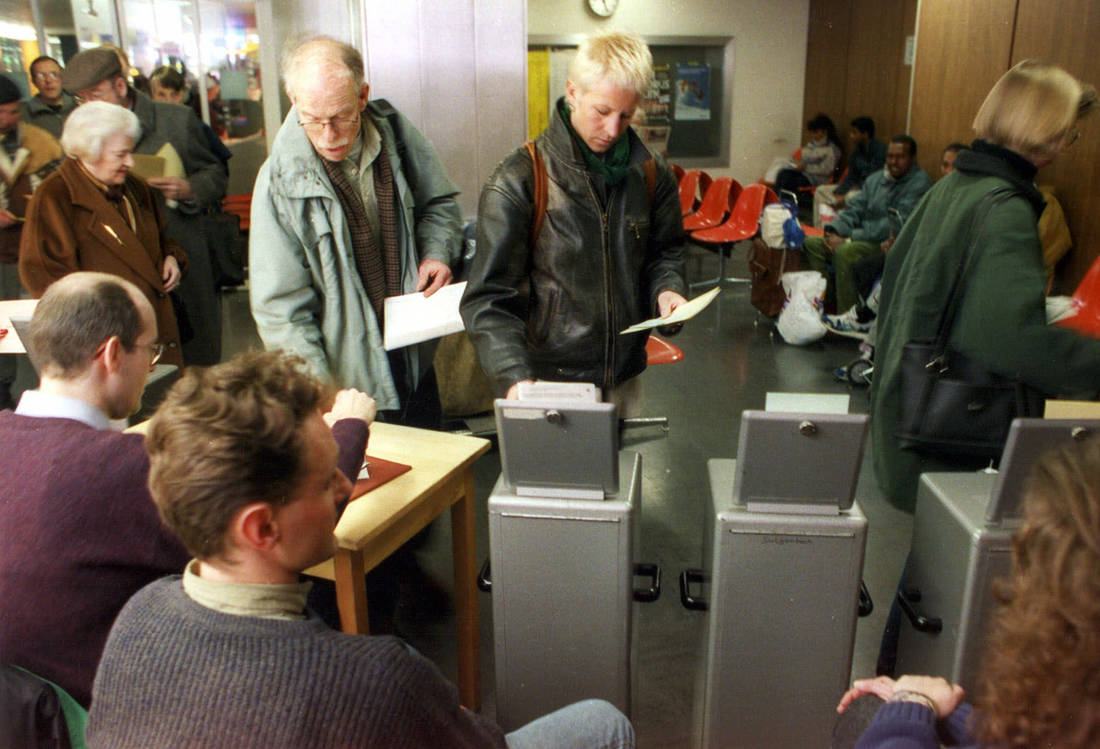
What have the people of Switzerland decided on all these years? For everything! From immigration and public health funding to blocking the huge bonuses of public sector executives. And while some measures have failed, such as the proposal to have the Central Bank 1/5 of its assets in gold, the course of government is often overturned by popular verdict.
Like the parliamentary proposal to deport foreigners convicted of crimes, which the people blocked in 2016, but also the initiative for a basic income for all. Ή the highest lowest hourly wage in the world. And while the country has always been a paradise for a free economy, since the 2008 crisis, people have become increasingly reluctant to adopt liberal economy measures.
More than 75 referendums have taken place since 2000 and a few dozen are still waiting in line until 2034, as in the last 20 years people are turning to the polls much more. Four times a year, the citizens of Switzerland are called upon to decide everything. Between January 1995 and June 2005, the Swiss voted 31 times, answering decisively 103 questions. At the same time, the French neighbors participated in only two democratic processes.
If there is one thing that the Swiss institutional architecture suggests and should remain, it is how much the citizen has to gain when representation is enriched by his or her actual participation in decisions. Here you see the most important but fewer issues are decided directly by the people, the least important but more issues by the Parliament and the completely trivial and infinitely more than the government. This is what they call Switzerland democracy…
